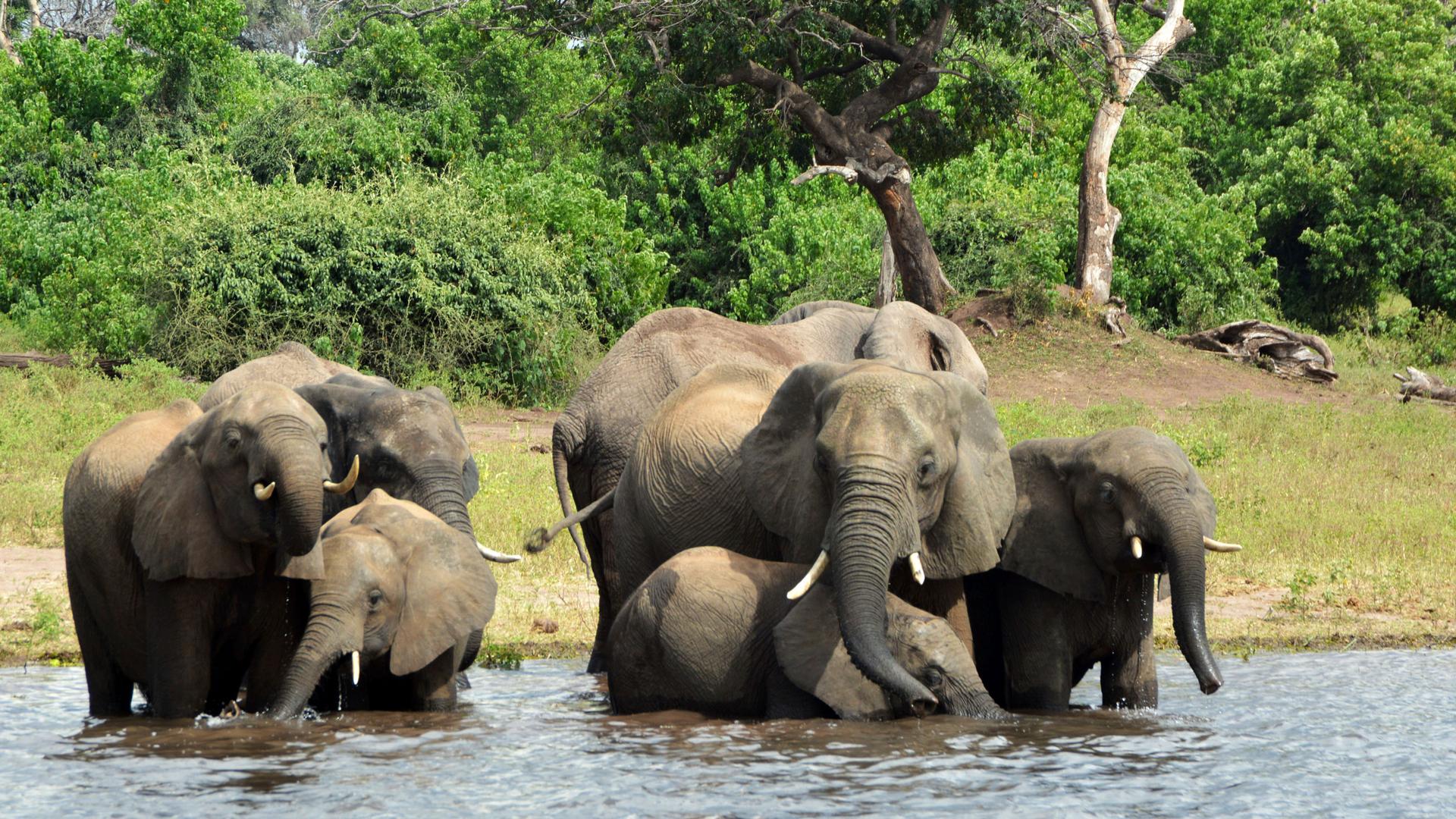This analysis was featured in Critical State, a weekly foreign policy newsletter from Inkstick Media. Subscribe here.
New research suggests that elephants may be self-domesticated, which could tell us not only about the similarity between elephants and humans but also about why humans evolved the way we did.
A theory known as the human self-domestication hypothesis suggests part of what is unique about human behavior — our development of cultures, tools, and languages — came about because of an evolutionary process that did not favor aggression. But that theory is hard to test as so few living beings are self-domesticated.
Enter the elephant, joining bonobos as another species that may also be self-domesticated, as suggested by Limor Raviv, Sarah L. Jacobson, Joshua M. Plotnik, Jacob Bowman, Vincent Lynch, and Antonio Benítez-Burraco, writing in a new article in the Proceedings of the National Academy of Sciences.
They write that “elephants indeed exhibit many of the features associated with self-domestication (e.g., reduced aggression, increased prosociality, extended juvenile period, increased playfulness, socially regulated cortisol levels, and complex vocal behavior.)”
This, they say, is reinforced by genetic evidence, insofar as “genes positively selected in elephants are enriched in pathways associated with domestication traits and include several candidate genes previously associated with domestication.”
One particularly interesting point of potential proof is “an extended juvenile period and enhanced play behaviors have been hypothesized to be a crucial outcome of self-domestication, contributing in turn to the behavioral changes associated with self-domestication, particularly to cultural niche construction, in a sort of positive feedback loop.”
Elephants take longer to develop, and more of what they learn is taught, as opposed to innately known. They also note that “enhanced playfulness in adulthood can counteract tendencies toward dominance, promoting more egalitarian and cooperative behaviors and thus contributing to the sophistication of culture.” Every playful adult elephant is (maybe) a sign of evolutionary success.
The socialization patterns of elephants, the authors argue, “parallel what we find in humans.”
Human self-domestication is thought to have been “triggered by several (potentially interacting) factors, including the reliance on more variable and nonlocal food sources that require more cooperation to obtain, and the adaptation to harsh environmental conditions like those resulting from the Last Glaciation, which increase the need for resource sharing.” They theorize that there were also several potential triggers for elephants, too.
The point isn’t just that we now know more about elephants, though, for pachyderm fans, that is exciting, too. It’s that we might know more about ourselves and how we humans came to be as we are.
“If elephants have undergone self-domestication, one can expect to see at least some of human’s unique social and cognitive abilities in elephants as well, especially those associated with cultural niche construction and cultural evolution,” they write.
“Our hypothesis for self-domestication in elephants thus has important implications for studying the process and outcomes of cultural evolution, which is seen as one of the most prominent and powerful hallmarks of humanity.”
Critical State is your weekly fix of foreign policy analysis from the staff at Inkstick Media. Subscribe here.
